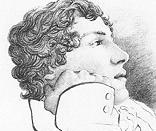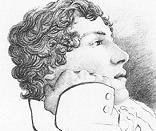In his poem "Ode to a Nightingale," John Keats uses powerful, distinct symbolism and imagery. The nightingale, for instance, is interpreted by many to be a symbol of Keats' poetic inspiration and satisfaction. This symbolism can be seen by the vivid descriptions Keats hives the nightingale. However, the nightingale is definitely not the only item of symbolism in "Ode to a Nightingale." In a short piece of art, Keats apparently has mastered using many different items, phrases, and brilliant, descriptive metaphorical text to symbolize something he yearns for. Countless pieces of the poem indicate that he also wishes for immortality and the ability to escape from reality and into another state of consciousness and the ecstasy of the nightingale's song - its peace, its happiness.
"Ode to a Nightingale" is relevant to the themes Keats explores in his poems and "odes." In an extremely imperfect, unharmonious world of reality, the author yearns for a way to escape the difficulties of reality and human life.
In an attempt to accomplish his escape, Keats tries to enter the life of the nightingale. He uses the strong symbolic meaning of the nightingale and its world to escape from harsh reality. In the poem, John Keats even transforms the bird to become immortal. While exploring numerous ways to join the bird forever in its "song," Keats is unfortunately forced to realize that escaping from reality to the nightingale is impossible.
First of all, the nightingale is the main feature and piece of symbolism in "Ode to a Nightingale." Historically, birds have always been the ideal symbol of freedom and inspiration. The fashion in which Keats describes the nightingale plays a central part to the reading of the poem. In the first stanza, Keats describes the bird as a "...light-winged Dryad of the...


